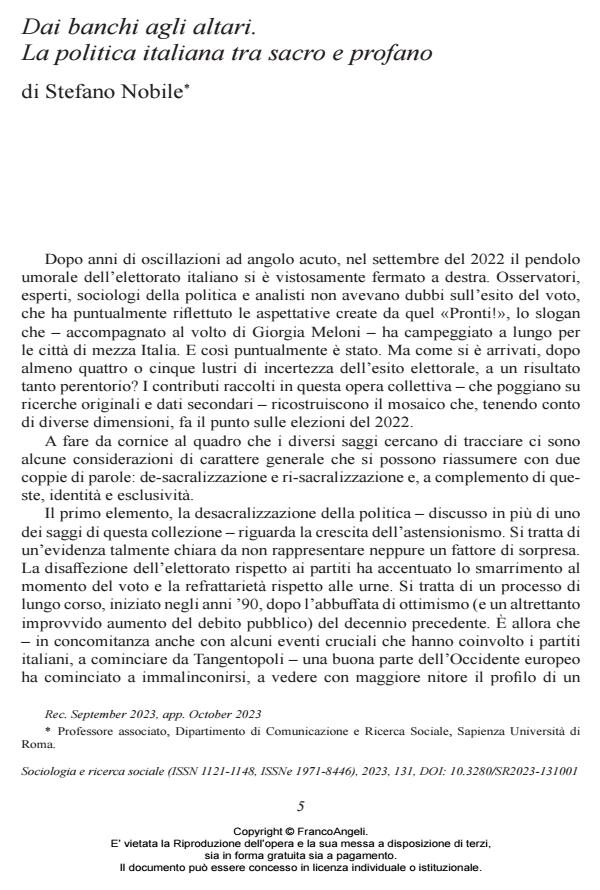From benches to altars. Italian politics between sacred and profane
Journal title SOCIOLOGIA E RICERCA SOCIALE
Author/s Stefano Nobile
Publishing Year 2023 Issue 2023/131
Language Italian Pages 9 P. 5-13 File size 179 KB
DOI 10.3280/SR2023-131001
DOI is like a bar code for intellectual property: to have more infomation
click here
Below, you can see the article first page
If you want to buy this article in PDF format, you can do it, following the instructions to buy download credits

FrancoAngeli is member of Publishers International Linking Association, Inc (PILA), a not-for-profit association which run the CrossRef service enabling links to and from online scholarly content.
This article proposes a reading of the main evidence of the 2022 parliamen- tary elections: the strong abstention, the great success of the right (and, conse- quently, the failure of the left and the decline of the 5 Star Movement). Absten- tionism and the victory of the right are interpreted as the two faces of a process that, on the one hand, led to the desacralization of politics, while – on the other – has emphasized the potential radicalization of identity that has underscored the dimension of the sacred.
Stefano Nobile, Dai banchi agli altari. La politica italiana tra sacro e profano in "SOCIOLOGIA E RICERCA SOCIALE " 131/2023, pp 5-13, DOI: 10.3280/SR2023-131001